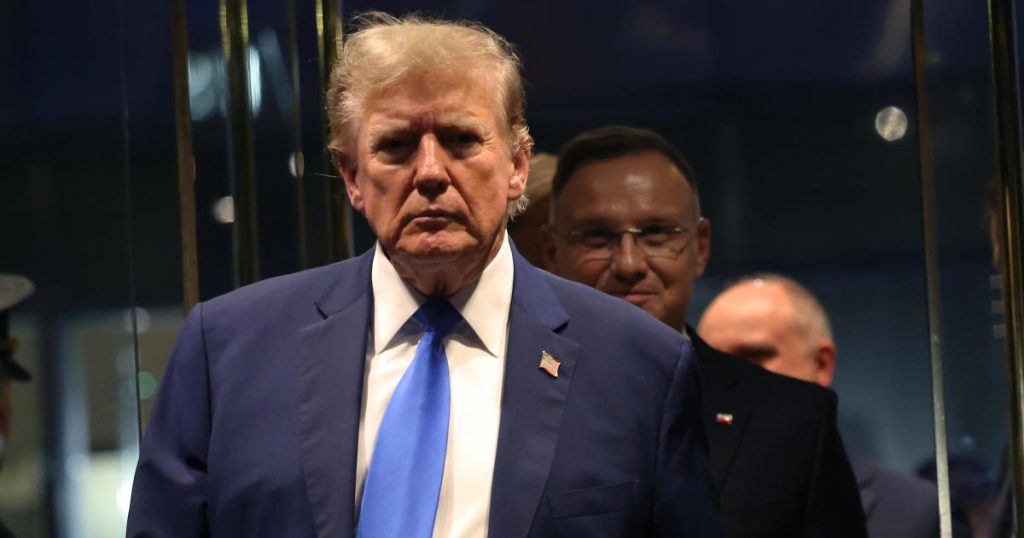Jury selection in the criminal trial of former President Donald Trump in Manhattan continued for its third day, with seven New Yorkers selected on Tuesday to serve as jurors. Out of an initial group of 96 residents, more than half were excused due to impartiality concerns, scheduling conflicts, and other reasons. Those remaining went through a thorough questioning process, including a 42-question assessment, to determine their ability to fairly decide the case. A smaller group was also questioned individually as lawyers delved into their online presence for any potential biases.
Despite being indicted over a year ago on 34 felony counts related to falsification of business records, Trump maintains his innocence and entered a not guilty plea. The charges stem from reimbursements made to his former attorney, Michael Cohen, for a payment to adult film star Stormy Daniels. Prosecutors allege that Trump tried to cover up these reimbursements to distance himself from the payment, which was made just before the 2016 presidential election. Trump has denied any wrongdoing and also denied having an affair with Daniels. He has criticized the prosecution as politically motivated and has clashed with the judge in the case, accusing him of bias.
The jury selection process involves challenges from both the prosecution and the defense, with each side having a limited number of peremptory challenges to excuse potential jurors without explanation. Furthermore, conflicts with potential jurors can also be brought up as “for cause” challenges, leading to their dismissal from the jury pool if necessary. Trump’s legal team, including his attorneys, have been actively involved in the selection process, using social media posts as grounds to challenge potential jurors. As the process continues, up to six alternate jurors will also be selected to ensure the trial can proceed smoothly.
With new groups of 96 Manhattan residents being considered for the jury each day, there are still five jurors left to be seated. Each side has four peremptory challenges remaining, and additional challenges will be permitted during the selection of alternate jurors. The trial, which could last up to two months, marks a historic moment as the first criminal trial of a former president in U.S. history. As the legal proceedings unfold, both sides are expected to vigorously present their cases and arguments in front of the selected jury members. The outcome of the trial will have significant implications for Trump and his legacy as a former president.


